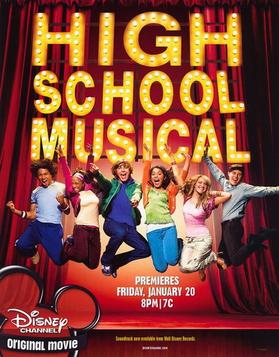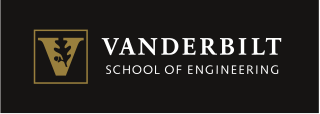Related Research Articles
Education reform is the name given to the goal of changing public education. The meaning and education methods have changed through debates over what content or experiences result in an educated individual or an educated society. Historically, the motivations for reform have not reflected the current needs of society. A consistent theme of reform includes the idea that large systematic changes to educational standards will produce social returns in citizens' health, wealth, and well-being.

Horace Mann was an American educational reformer, slavery abolitionist and Whig politician known for his commitment to promoting public education, he is thus also known as The Father of American Education. In 1848, after public service as Secretary of the Massachusetts State Board of Education, Mann was elected to the United States House of Representatives (1848–1853). From September 1852 to his death in 1859, he served as President of Antioch College.

Dale Carnegie was an American writer and teacher of courses in self-improvement, salesmanship, corporate training, public speaking, and interpersonal skills. Born into poverty on a farm in Missouri, he was the author of How to Win Friends and Influence People (1936), a bestseller that remains popular today. He also wrote How to Stop Worrying and Start Living (1948), Lincoln the Unknown (1932), and several other books.

In contemporary education, mathematics education—known in Europe as the didactics or pedagogy of mathematics—is the practice of teaching, learning, and carrying out scholarly research into the transfer of mathematical knowledge.

Robert Doyle Marshall Jr. is an American film and theater director, producer, and choreographer. He is best known for directing the film version of the Broadway musical Chicago, which was based on the play of the same name by playwright Maurine Dallas Watkins. His work on the film earned him the Directors Guild of America Award for Outstanding Directing – Feature Film, as well as nominations for the Academy Award for Best Director, the Golden Globe Award for Best Director, and the BAFTA Award for Best Direction. He also directed the films Memoirs of a Geisha, Pirates of the Caribbean: On Stranger Tides, Into the Woods, Mary Poppins Returns, and the Disney live-action remake The Little Mermaid.

Blackboard Jungle is a 1955 American social drama film about an English teacher in an interracial inner-city school, based on the 1954 novel The Blackboard Jungle by Evan Hunter and adapted for the screen and directed by Richard Brooks. It is remembered for its innovative use of rock and roll in its soundtrack, for casting grown adults as high school teens, and for the unique breakout role of a black cast member, Sidney Poitier, as a rebellious yet musically talented student.

John Taylor Gatto was an American author and school teacher. After teaching for nearly 30 years he authored several books on modern education, criticizing its ideology, history, and consequences. He is best known for his books Dumbing Us Down: the Hidden Curriculum of Compulsory Schooling, and The Underground History of American Education: A Schoolteacher’s Intimate Investigation Into the Problem of Modern Schooling which criticize the modern education system and promote the concept of unschooling and a return to homeschooling.
An educational film is a film or movie whose primary purpose is to educate. Educational films have been used in classrooms as an alternative to other teaching methods.

Philip Davis Guggenheim is an American screenwriter, director, and producer.

Albert Shanker was president of the United Federation of Teachers from 1964 to 1985 and president of the American Federation of Teachers (AFT) from 1974 to 1997.

High School Musical is a 2006 American musical television film produced by and aired on Disney Channel as part of the network's slate of original television films. The first installment of the High School Musical series, the film was directed by choreographer and filmmaker Kenny Ortega from a screenplay by Peter Barsocchini. It stars Zac Efron, Vanessa Hudgens, Ashley Tisdale, Lucas Grabeel, Alyson Reed, Corbin Bleu, and Monique Coleman. High School Musical follows student Troy Bolton (Efron), the captain of his school basketball team, and Gabriella Montez (Hudgens), an academically gifted transfer student, who together audition for the lead roles in their school musical, causing division among the school's cliques.
Frances Elliott Mann Hall was an American educator, school administrator, and one of the five founders of Sigma Kappa sorority. She opened and operated the Hall-Noyes School in Washington, D.C.

The Prussian education system refers to the system of education established in Prussia as a result of educational reforms in the late 18th and early 19th century, which has had widespread influence since. The Prussian education system was introduced as a basic concept in the late 18th century and was significantly enhanced after Prussia's defeat in the early stages of the Napoleonic Wars. The Prussian educational reforms inspired similar changes in other countries, and remain an important consideration in accounting for modern nation-building projects and their consequences.
Emotional and behavioral disorders refer to a disability classification used in educational settings that allows educational institutions to provide special education and related services to students who have displayed poor social and/or academic progress.

The School of Engineering provides undergraduate and graduate education in engineering and the engineering sciences at Vanderbilt University, a major research university located in Nashville, Tennessee. Founded in 1879, the Vanderbilt School of Engineering is the oldest private school of engineering in the American South. The school has an exceptionally high percentage of female engineers, 41.6%, compared to a national average of 22.5%.
In Fair Palestine: A story of Romeo and Juliet is a film produced by Palestinian high school students at the Quaker-run Ramallah Friends Schools in the West Bank. A documentary drama, it reprises the story of Romeo and Juliet in the modern-day context of life in a Palestinian city, Ramallah. Work on the project was initiated in January 2006 by Doug Hart, an English teacher of American background. The film premiered on 19 January 2008 at the Ramallah Cultural Palace to an audience of 800 people in the 700 seat cinema. The premiere garnered coverage by mainstream media outlets in the Palestinian territories, Jordan and Syria.

Nadarajan "Raj" Chetty is an Indian-American economist who is the William A. Ackman Professor of Public Economics at Harvard University. Some of Chetty's recent papers have studied equality of opportunity in the United States and the long-term impact of teachers on students' performance. Offered tenure at the age of 28, Chetty became one of the youngest tenured faculty in the history of Harvard's economics department. He is a recipient of the John Bates Clark Medal and a 2012 MacArthur Fellow. Currently, he is also an advisory editor of the Journal of Public Economics. In 2020, he was awarded the Infosys Prize in Economics, the highest monetary award recognizing achievements in science and research, in India.
Ernest LeRoy Boyer was an American educator who most notably served as Chancellor of the State University of New York, United States Commissioner of Education, and President of the Carnegie Foundation for the Advancement of Teaching. Boyer was recipient of numerous awards, including over 140 honorary doctorates.
Divine Bradley is a social imagineer, business coach, youth mentor, motivational speaker, community leader, serial social entrepreneur who founded a youth-led non-profit organization at age 17 in New York City that led to the opening of several community centers with the purpose of providing students recreational activities as well as mentoring programs to promote financial responsibility and community leadership.
"Factory model schools", "factory model education", or "industrial era schools" are ahistorical terms that emerged in the mid to late-20th century and are used by writers and speakers as a rhetorical device by those advocating changes to education systems. Generally speaking, when used, the terms are referencing characteristics of European education that emerged in the late 18th century and then in North America in the mid-19th century that include top-down management, outcomes designed to meet societal needs, age-based classrooms, the modern liberal arts curriculum, and a focus on producing results. The phrase is typically used in the context of discussing what the author has identified as negative aspects of public schools. As an example, the "factory model of schools are 'designed to create docile subjects and factory workers.'" The phrases are also used to incorrectly suggest the look of American education hasn't changed since the 19th century. Educational historians describe the phrase as misleading and an inaccurate representation of the development of American public education. Education historian Sherman Dorn offers:
the [factory model school] myth exits because teaching and schooling is risk-averse, and because we argue based on metaphors: schools as factories, teachers as armies, schools as malls... knowing the accurate history frees us from the idea that schools cannot change. They can, and we are not the first generation to try. Nor will we be the last.
References
- ↑ "Education Week". edweek.org. Retrieved May 3, 2015.
- ↑ "The Hollywood Reporter". hollywoodreporter.com. Retrieved January 27, 2015.
- ↑ seattleducation2010 (2018-04-21). "The Movie "Most Likely to Succeed" is a Paid Infomercial for Project Based Learning". Seattle Education. Retrieved 2019-06-02.
{{cite web}}: CS1 maint: numeric names: authors list (link) - ↑ "The Washington Post". washingtonpost.com. Retrieved November 3, 2015.
- ↑ Dorn, Sherman. "How the "industrial era schools" myth is a barrier to helping education today" . Retrieved 2019-06-02.
- ↑ Schneider, Jack (2019-01-28). "Betsy DeVos Is Fabricating History to Sell a Bad Education Policy". The New Republic. ISSN 0028-6583 . Retrieved 2019-06-02.
- ↑ Doxtdator, Benjamin (2018-08-20). "Reclaiming Educational Reform". Long View on Education. Retrieved 2019-06-02.
- ↑ admin. "Note to Tony Wagner, Co-Author of "Most Likely to Succeed" | When 140 just isn't enough..." Retrieved 2019-06-02.
- ↑ Altenbaugh, Richard J. (2003). The American People and Their Education: A Social History. Merrill/Prentice Hall. ISBN 9780135253793.
- ↑ Pennsylvania (1834). An act to establish a general system of education by common schools. University of California Libraries. Harrisburg : Printed by H. Welsh.
- ↑ "Index: High School". buffaloah.com. Retrieved 2019-07-05.
- ↑ "Buffalo Emporium and General Advertiser". January 10, 1828. Retrieved July 5, 2019.